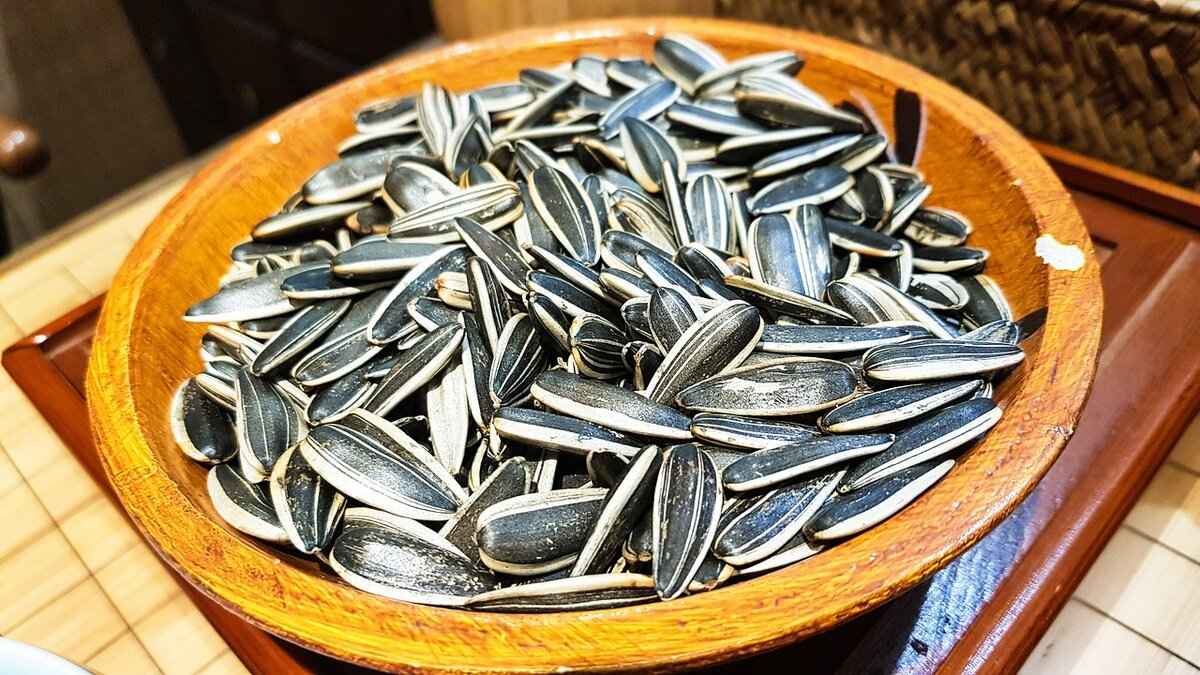Chia seeds have gained immense popularity in recent years, often hailed as a superfood due to their remarkable nutritional profile. This article delves into the composition of chia seeds, examining their health benefits, potential drawbacks, and effective ways to incorporate them into your daily diet.
Chia seeds are tiny, nutrient-dense seeds that originate from the Salvia hispanica plant, which is native to Mexico and Guatemala. These seeds are celebrated not only for their versatility but also for their impressive health benefits.
Chia seeds are a powerhouse of nutrition, containing a variety of essential nutrients, including:
- Omega-3 Fatty Acids
- Dietary Fiber
- Protein
- Vitamins and Minerals
One of the standout features of chia seeds is their high content of plant-based omega-3 fatty acids, which are vital for maintaining heart health, supporting brain function, and reducing inflammation throughout the body.
Chia seeds are particularly rich in dietary fiber, which plays a crucial role in digestive health. Fiber helps to:
- Promote regular bowel movements
- Enhance feelings of fullness, aiding in weight management
- Regulate blood sugar levels
Incorporating chia seeds into your diet can yield numerous health benefits:
- Weight Management: The fiber in chia seeds helps control appetite and promotes satiety, making them a great addition to weight loss strategies.
- Heart Health: Chia seeds can help lower cholesterol levels and improve overall heart health due to their omega-3 fatty acids and fiber content.
There are countless ways to incorporate chia seeds into your meals. Here are some popular methods:
- Chia Seed Pudding: A simple and delicious way to enjoy chia seeds, requiring only a few ingredients.
- In Smoothies: Adding chia seeds to your smoothies enhances their nutritional profile without altering the taste.
- Sprinkling on Salads: Chia seeds can add a delightful crunch and boost the nutrient content of salads.
While chia seeds offer numerous health benefits, there are some potential drawbacks to consider:
- Digestive Issues: Some individuals may experience bloating or discomfort if chia seeds are not consumed with adequate hydration.
- Medication Interactions: Due to their high omega-3 content, chia seeds may interact with blood-thinning medications. It’s advisable to consult a healthcare professional if you are on such medications.
In summary, chia seeds are a versatile and nutrient-rich food that can significantly enhance your diet. By understanding their nutritional profile and health benefits, you can make informed choices about incorporating them into your meals.
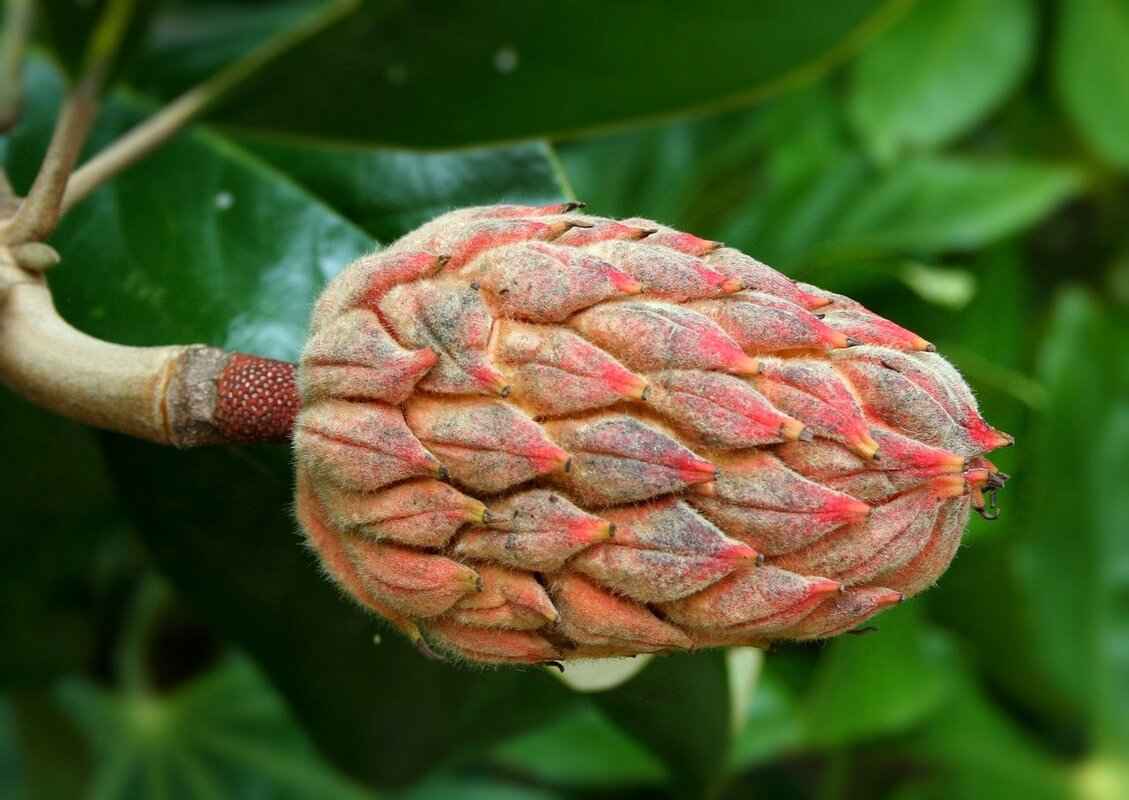
What Are Chia Seeds?
Chia seeds are tiny black seeds that come from the Salvia hispanica plant, which is native to regions in Mexico and Guatemala. These seeds have gained immense popularity in recent years, often labeled as a superfood due to their rich nutritional profile and numerous health benefits. Historically, chia seeds were a staple food for ancient civilizations, including the Aztecs and Mayans, who valued them for their energy-boosting properties.
These seeds are not just small in size; they are also packed with essential nutrients that contribute to overall health and wellness. Chia seeds are a fantastic source of omega-3 fatty acids, dietary fiber, protein, and various vitamins and minerals. Their unique ability to absorb water and form a gel-like consistency makes them an interesting addition to various dishes.
What Nutrients Are Found in Chia Seeds?
- Omega-3 Fatty Acids: These seeds are one of the richest plant-based sources of omega-3 fatty acids, crucial for maintaining heart health and reducing inflammation.
- Dietary Fiber: Chia seeds are incredibly high in fiber, promoting digestive health and helping to regulate blood sugar levels.
- Protein: They contain a significant amount of protein, making them an excellent choice for vegetarians and vegans looking to increase their protein intake.
- Vitamins and Minerals: Chia seeds are rich in essential nutrients, including calcium, magnesium, and phosphorus, contributing to bone health.
How Do Chia Seeds Benefit Your Health?
Incorporating chia seeds into your diet can lead to numerous health benefits:
- Improved Digestion: The high fiber content in chia seeds aids in digestion, promoting regular bowel movements and preventing constipation.
- Heart Health: Regular consumption of chia seeds can help lower cholesterol levels and reduce the risk of heart disease due to their omega-3 fatty acids.
- Weight Management: Chia seeds can help control appetite and promote feelings of fullness, which may support weight loss efforts.
How Can You Use Chia Seeds in Your Diet?
There are countless ways to incorporate chia seeds into your meals:
- Chia Seed Pudding: Mix chia seeds with your choice of milk or yogurt and let them sit overnight for a nutritious breakfast or snack.
- Smoothies: Add a tablespoon of chia seeds to your favorite smoothie for an extra boost of nutrients without altering the flavor.
- Baking: Incorporate chia seeds into baked goods like muffins or bread for added texture and nutrition.
Are There Any Potential Drawbacks to Eating Chia Seeds?
While chia seeds are generally safe for consumption, some individuals may experience digestive discomfort if they consume them in large quantities without adequate hydration. It’s important to drink plenty of water when eating chia seeds to help them expand and avoid any potential digestive issues.
Additionally, those on blood-thinning medications should consult their healthcare provider before adding chia seeds to their diet, as their high omega-3 content may interact with certain medications.
In summary, chia seeds are a versatile and nutrient-dense addition to any diet. Their numerous health benefits, combined with their ease of incorporation into various meals, make them a popular choice for health-conscious individuals.
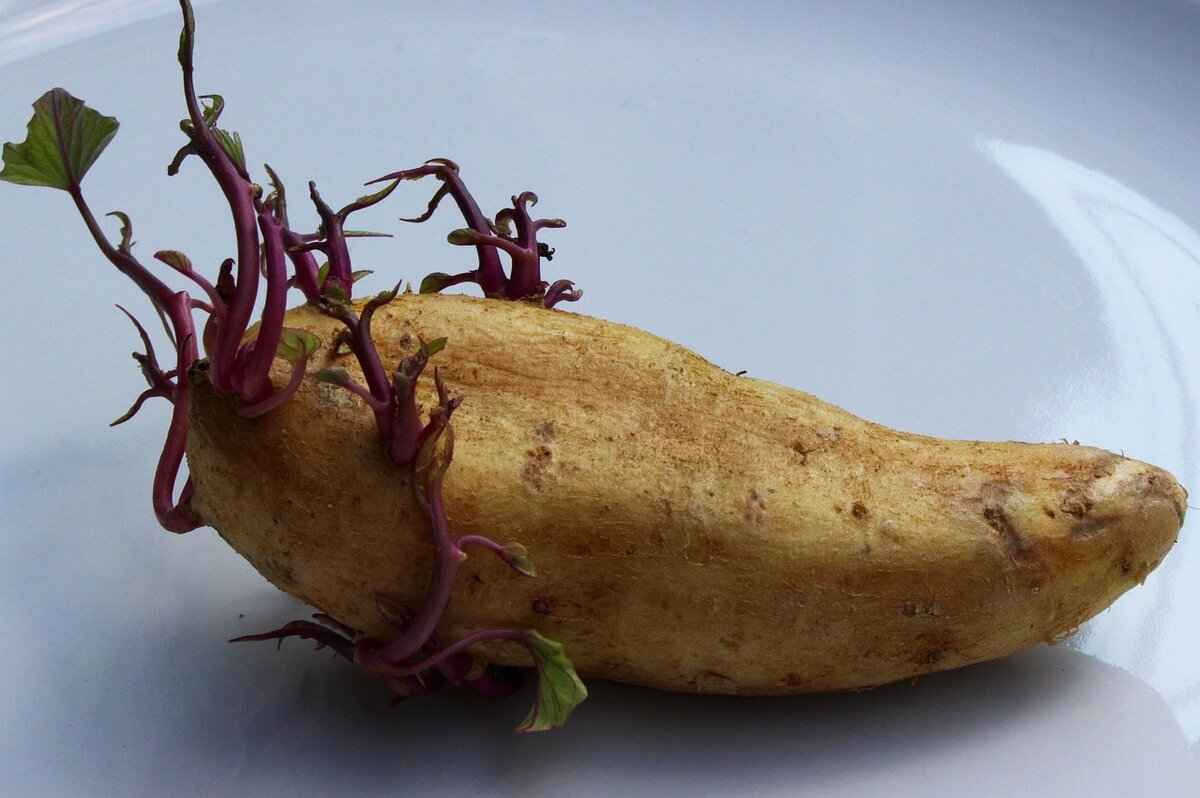
What Nutrients Are Found in Chia Seeds?
Chia seeds are more than just a trendy health food; they are a powerhouse of nutrients that can significantly enhance your overall health. These tiny seeds, derived from the Salvia hispanica plant, are known for their impressive nutritional profile, making them a popular choice among health enthusiasts and nutritionists alike.
Chia seeds are packed with essential nutrients, including omega-3 fatty acids, fiber, protein, and a variety of vitamins and minerals. Each of these components contributes to the seeds’ reputation as a superfood.
One of the standout features of chia seeds is their high content of plant-based omega-3 fatty acids. These fatty acids are crucial for maintaining heart health, supporting brain function, and reducing inflammation throughout the body.
- Cardiovascular Health: Omega-3s help lower cholesterol levels and reduce blood pressure.
- Mood Improvement: They may contribute to better mood and cognitive function.
- Anti-Inflammatory Properties: Omega-3s can help reduce inflammation, benefiting overall health.
Chia seeds are an excellent source of dietary fiber, containing approximately 11 grams per ounce. This high fiber content aids digestion, promotes feelings of fullness, and helps regulate blood sugar levels, making them beneficial for those looking to manage their weight.
In addition to fiber, chia seeds are also a rich source of plant-based protein. With about 4 grams of protein per ounce, they provide a great way for vegetarians and vegans to meet their protein needs.
Chia seeds are loaded with essential vitamins and minerals, including:
- Calcium: Important for bone health.
- Magnesium: Supports muscle and nerve function.
- Phosphorus: Essential for energy production.
- Zinc: Plays a role in immune function.
Chia seeds are also rich in antioxidants, which help combat oxidative stress and may reduce the risk of chronic diseases. These antioxidants work to neutralize free radicals in the body, promoting better health.
Incorporating chia seeds into your diet can offer numerous health benefits. Their unique combination of nutrients supports various bodily functions and can enhance your overall wellness.
The high fiber content in chia seeds helps control appetite and promotes feelings of fullness, which can aid in weight loss efforts.
Thanks to their omega-3 fatty acids and fiber, chia seeds can lower cholesterol levels and improve heart health, reducing the risk of cardiovascular diseases.
Fiber promotes healthy digestion, and chia seeds can help prevent constipation and promote regular bowel movements.
The calcium and phosphorus in chia seeds are essential for maintaining strong bones, making them a great addition to a bone-healthy diet.
In conclusion, chia seeds are a nutrient-dense food that can easily be added to your diet, offering a multitude of health benefits. Their rich content of omega-3 fatty acids, fiber, protein, and essential vitamins and minerals makes them a valuable addition to any meal plan.
Omega-3 Fatty Acids
When it comes to nutritional superfoods, chia seeds stand out for their impressive health benefits, particularly due to their rich content of . These essential fats are not produced by the body, making it crucial to obtain them from dietary sources. Chia seeds are an excellent source of plant-based omega-3 fatty acids, which play a vital role in supporting heart health, enhancing brain function, and reducing inflammation throughout the body.
Omega-3 fatty acids are a type of polyunsaturated fat that is essential for various bodily functions. They are primarily known for their ability to:
- Support cardiovascular health: Omega-3s help lower triglyceride levels, reduce blood pressure, and prevent the formation of arterial plaque, all of which contribute to a healthier heart.
- Enhance brain function: These fatty acids are crucial for maintaining cognitive health, supporting memory, and potentially lowering the risk of neurodegenerative diseases.
- Reduce inflammation: Omega-3s possess anti-inflammatory properties that can help alleviate symptoms of chronic inflammatory conditions such as arthritis.
Chia seeds are remarkably rich in omega-3 fatty acids, with a single ounce (approximately 28 grams) containing about 5 grams of these essential fats. This amount significantly contributes to the recommended daily intake for adults, making chia seeds a convenient and effective way to boost your omega-3 consumption.
Incorporating chia seeds into your diet can lead to numerous health benefits:
- Improved heart health: Regular consumption of omega-3s can lower cholesterol levels and reduce the risk of heart disease.
- Enhanced mood and mental well-being: Omega-3 fatty acids have been linked to improved mood and may help reduce symptoms of anxiety and depression.
- Better joint health: The anti-inflammatory properties of omega-3s can help reduce joint pain and stiffness, particularly in individuals with arthritis.
Adding chia seeds to your meals is simple and versatile. Here are some practical ways to incorporate them:
- Chia Seed Pudding: Combine chia seeds with your choice of milk and sweetener, then let it sit overnight for a nutritious breakfast or snack.
- In Smoothies: Blend chia seeds into your smoothies for an extra boost of omega-3s and fiber without altering the flavor.
- Baking: Include chia seeds in baked goods such as muffins or bread for added nutrition.
While omega-3 fatty acids are beneficial, moderation is key. Consuming excessive amounts can lead to potential side effects, including digestive discomfort or increased bleeding risk, especially for individuals on blood-thinning medications. It’s advisable to consult a healthcare provider if you have concerns about your omega-3 intake.
In summary, chia seeds are a powerhouse of that provide numerous health benefits. By incorporating them into your diet, you can enhance your overall well-being while enjoying a versatile and nutritious food source.
Benefits of Omega-3s
Omega-3 fatty acids are essential nutrients that play a crucial role in maintaining overall health. These polyunsaturated fats are not produced by the body, making it imperative to obtain them through diet. Chia seeds, which are tiny yet powerful, are among the richest plant-based sources of omega-3s, specifically alpha-linolenic acid (ALA). Their inclusion in a balanced diet can lead to numerous health benefits.
One of the primary benefits of omega-3 fatty acids is their ability to support cardiovascular health. Research indicates that these fatty acids can lower triglyceride levels, reduce blood pressure, and decrease the risk of heart disease. By incorporating chia seeds into your diet, you can harness these benefits effectively.
Omega-3 fatty acids are also linked to improved mood and mental health. Studies suggest that they may help alleviate symptoms of depression and anxiety. The presence of ALA in chia seeds can contribute to better brain function and emotional well-being, making them a valuable addition to meals, especially for those struggling with mood disorders.
In addition to supporting mood, omega-3 fatty acids are vital for cognitive function. They are known to enhance memory and learning abilities. The brain is composed largely of fat, and omega-3s are crucial for maintaining its structure and function. Regular consumption of chia seeds can provide the necessary nutrients to support brain health and cognitive performance.
A single ounce of chia seeds contains approximately 5 grams of omega-3 fatty acids, making them one of the richest sources available. This amount significantly contributes to the recommended daily intake for adults, which is about 1.1 to 1.6 grams. Thus, incorporating chia seeds into your diet can help meet your omega-3 needs efficiently.
Another remarkable benefit of omega-3 fatty acids is their ability to reduce inflammation in the body. Chronic inflammation is linked to various diseases, including heart disease, diabetes, and cancer. The anti-inflammatory properties of omega-3s can help mitigate these risks, making chia seeds a powerful ally in promoting long-term health.
- Chia Seed Pudding: A simple and nutritious breakfast option.
- Smoothies: Blend chia seeds into your favorite smoothies for added nutrition.
- Baking: Incorporate chia seeds into muffins, bread, or energy bars.
In summary, the benefits of omega-3 fatty acids found in chia seeds are extensive, ranging from supporting cardiovascular health to enhancing mood and cognitive function. By adding chia seeds to your diet, you can take a proactive step towards improving your overall health and well-being.
How Much Omega-3 Is in Chia Seeds?
Chia seeds, often hailed as a superfood, are small black seeds that pack a powerful nutritional punch. They are derived from the Salvia hispanica plant, which is native to Mexico and Guatemala. Among their many health benefits, chia seeds are particularly noted for their high content of omega-3 fatty acids. But just how much omega-3 is present in these tiny seeds, and what does this mean for your health?
A single ounce of chia seeds contains approximately 5 grams of omega-3 fatty acids. This amount significantly contributes to the recommended daily intake for adults, which is around 1.1 to 1.6 grams for most individuals. This rich source makes chia seeds an excellent option for those looking to increase their omega-3 intake, especially for individuals following a plant-based diet.
Omega-3 fatty acids are essential fats that the body cannot produce on its own, meaning they must be obtained through diet. They play a crucial role in numerous bodily functions, including:
- Heart Health: Omega-3s help reduce triglycerides, lower blood pressure, and decrease the risk of heart disease.
- Brain Function: They are vital for brain health, contributing to cognitive function and potentially reducing the risk of neurodegenerative diseases.
- Anti-Inflammatory Properties: Omega-3s help combat inflammation, which is linked to various chronic diseases.
While chia seeds are a fantastic plant-based source of omega-3s, it’s essential to compare them to other sources:
| Source | Omega-3 Content (per serving) |
|---|---|
| Chia Seeds (1 oz) | 5 grams |
| Flaxseeds (1 oz) | 6.3 grams |
| Walnuts (1 oz) | 2.5 grams |
| Salmon (3 oz) | 1.5 grams |
Incorporating chia seeds into your diet can be simple and delicious. Here are some practical tips:
- Soak Them: Soaking chia seeds in water or milk for a few hours can enhance their digestibility and nutrient absorption.
- Add to Smoothies: Blend chia seeds into your favorite smoothies for an added boost of omega-3s.
- Baking: Incorporate chia seeds into baked goods like muffins and bread for a nutritious twist.
While chia seeds are generally safe for most people, it’s essential to consider potential risks:
- Digestive Issues: Some individuals may experience digestive discomfort if chia seeds are not consumed with adequate liquid.
- Medication Interactions: Due to their high omega-3 content, chia seeds may interact with blood-thinning medications. Always consult with a healthcare provider if you are on such medications.
In summary, chia seeds are a remarkable source of omega-3 fatty acids, making them a valuable addition to a balanced diet. With their numerous health benefits and versatile usage, they can easily fit into various meals, ensuring you reap the rewards of these essential nutrients.
High Fiber Content
Chia seeds have gained popularity as a superfood in recent years, and one of the key reasons for this is their . These tiny seeds are not just a trendy health food; they offer a plethora of benefits that can support a healthy lifestyle, particularly in terms of digestion and weight management.
Dietary fiber is an essential component of a balanced diet. It is known to promote digestive health, help maintain a healthy weight, and regulate blood sugar levels. Chia seeds are an excellent source of fiber, containing approximately 10 grams per ounce. This high fiber content makes them a perfect addition to any meal.
The fiber found in chia seeds is primarily soluble fiber, which absorbs water and forms a gel-like substance in the digestive tract. This process helps to:
- Slow down digestion: By slowing the digestive process, chia seeds can help you feel fuller for longer, reducing overall calorie intake.
- Promote regularity: The gel-like substance can help bulk up stool and promote regular bowel movements, reducing the risk of constipation.
- Support gut health: Fiber feeds the beneficial bacteria in your gut, contributing to a healthier microbiome.
For those looking to manage their weight, the high fiber content of chia seeds can be particularly beneficial. Here’s how:
- Increased satiety: When chia seeds are consumed, they expand in the stomach, leading to a feeling of fullness that can help curb cravings and reduce the urge to snack between meals.
- Balanced blood sugar levels: The soluble fiber in chia seeds can help stabilize blood sugar levels, preventing spikes and crashes that often lead to overeating.
- Low-calorie density: Chia seeds are nutrient-dense but low in calories, making them an ideal choice for those looking to lose weight without sacrificing nutrition.
Adding chia seeds to your diet is simple and versatile. Here are a few practical ways to include them:
- Chia Seed Pudding: Combine chia seeds with milk or a milk alternative, sweeten to taste, and let it sit overnight for a delicious breakfast or snack.
- In Smoothies: Toss a tablespoon of chia seeds into your smoothies for a fiber boost without altering the flavor.
- Baking: Add chia seeds to baked goods like muffins or bread for added nutrition.
While chia seeds are generally safe to consume, it’s important to consider the following:
- Hydration: Due to their high fiber content, it’s crucial to drink plenty of water when consuming chia seeds to prevent digestive discomfort.
- Gradual Introduction: If you’re not used to a high-fiber diet, introduce chia seeds gradually to allow your digestive system to adjust.
In summary, the high fiber content of chia seeds makes them a valuable addition to your diet. They not only improve digestion and promote feelings of fullness but also support weight management and overall health. By incorporating them into your meals, you can enjoy their numerous benefits while enhancing your nutritional intake.
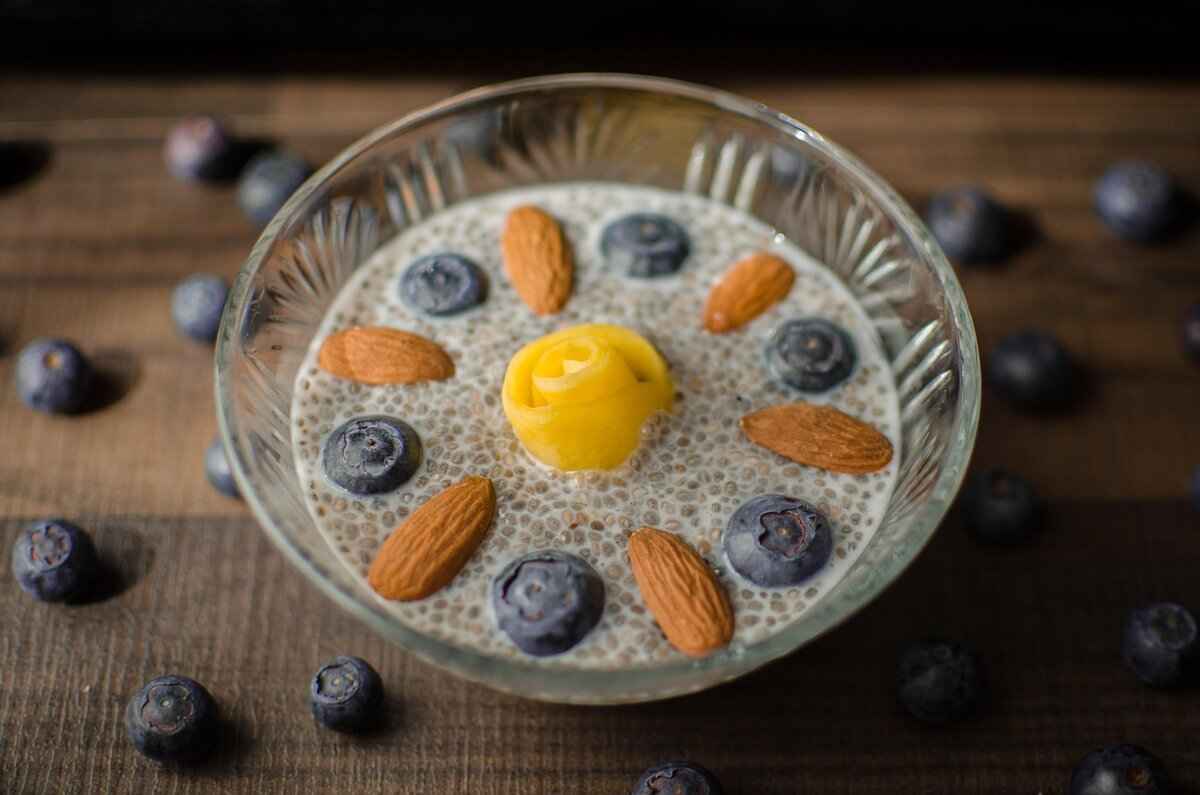
What Are the Health Benefits of Chia Seeds?
Chia seeds have gained significant popularity as a superfood in recent years, and for good reason. These tiny seeds are not only versatile and easy to incorporate into various meals, but they also offer a plethora of health benefits. From supporting heart health to enhancing digestive function, the advantages of adding chia seeds to your diet are numerous.
Incorporating chia seeds into your diet can offer numerous health benefits, ranging from improved digestion to enhanced heart health, making them a popular superfood choice. Below are some of the most notable benefits:
- Rich Source of Antioxidants: Chia seeds are loaded with antioxidants that help combat oxidative stress and inflammation in the body. This can reduce the risk of chronic diseases and promote overall health.
- Improved Digestive Health: With their high fiber content, chia seeds can aid in digestion by promoting regular bowel movements and preventing constipation. The soluble fiber in chia seeds absorbs water, forming a gel-like substance that helps to keep you feeling full and satisfied.
- Heart Health: The omega-3 fatty acids found in chia seeds can help lower cholesterol levels and reduce blood pressure, contributing to improved cardiovascular health. Regular consumption may lower the risk of heart disease.
- Bone Health: Chia seeds are a rich source of calcium, magnesium, and phosphorus, essential minerals for maintaining strong bones. This makes them an excellent addition to the diet, especially for those who are lactose intolerant or vegan.
- Weight Management: Due to their ability to absorb water and expand in the stomach, chia seeds can promote a feeling of fullness, which may help control appetite and reduce overall calorie intake.
The high fiber content in chia seeds not only aids in digestion but also plays a crucial role in weight management. When consumed, chia seeds absorb liquid and expand, which can help you feel fuller for longer periods. This natural appetite suppression can assist in reducing calorie intake and support weight loss efforts.
Yes, chia seeds are particularly beneficial for heart health. Their rich omega-3 fatty acid content helps to lower bad cholesterol (LDL) levels while increasing good cholesterol (HDL) levels. This balance is essential for maintaining cardiovascular health and reducing the risk of heart disease. Additionally, the fiber in chia seeds helps regulate blood pressure, further supporting heart health.
While chia seeds are generally safe for most individuals, some may experience digestive discomfort if consumed in large quantities without adequate hydration. It’s essential to drink plenty of water when incorporating these seeds into your diet to prevent bloating or gastrointestinal issues. Additionally, individuals on blood-thinning medications should consult with a healthcare provider, as chia seeds’ high omega-3 content may interact with these medications.
Incorporating chia seeds into your meals is simple and versatile. Here are some easy ways to enjoy their health benefits:
- Chia Seed Pudding: Mix chia seeds with your choice of milk or yogurt and let them sit overnight. In the morning, you can add fruits and nuts for a nutritious breakfast.
- Sprinkle on Salads: Add a tablespoon of chia seeds to your salads for an extra crunch and nutritional boost.
- Smoothies: Blend chia seeds into your favorite smoothie for added fiber and omega-3 fatty acids.
In conclusion, chia seeds are a powerhouse of nutrients that can provide numerous health benefits when included in your diet. Their versatility makes them easy to incorporate into various meals, allowing you to enjoy their advantages while enhancing your overall health.
Weight Management
Chia seeds have gained popularity as a superfood in recent years, and one of the key reasons for this is their remarkable ability to assist with . Their unique properties make them a valuable addition to any diet, especially for those looking to control their appetite and maintain a healthy weight.
Chia seeds are incredibly rich in dietary fiber, which plays a crucial role in promoting feelings of fullness. When consumed, these tiny seeds absorb water and expand in the stomach, creating a gel-like substance that can help you feel satisfied for a longer period. This natural appetite suppressant can be particularly beneficial for individuals trying to reduce their caloric intake.
Unlike many other seeds and grains, chia seeds are unique in their ability to absorb up to 12 times their weight in liquid. This property not only aids in hydration but also enhances their effectiveness in curbing hunger. By incorporating chia seeds into your meals, you can potentially reduce the urge to snack between meals, which is often a significant hurdle in weight management.
- Chia Seed Pudding: Combine chia seeds with your choice of milk or yogurt and let them sit overnight. This creates a nutritious and filling breakfast or snack option.
- Smoothies: Add a tablespoon of chia seeds to your favorite smoothie. They blend well and provide an additional boost of fiber and omega-3 fatty acids.
- Baking: Incorporate chia seeds into baked goods such as muffins or bread for added texture and nutrition.
- Salads: Sprinkle chia seeds on top of salads for a crunchy texture that enhances satiety.
While chia seeds offer numerous benefits, it’s essential to consume them in moderation. Some individuals may experience digestive discomfort if they consume too many chia seeds at once, particularly if they are not adequately hydrated. It’s advisable to start with a small amount and gradually increase your intake to allow your body to adjust.
In summary, chia seeds can play a significant role in weight management due to their high fiber content and unique properties that promote feelings of fullness. By incorporating them into your diet in various ways, you can enjoy their health benefits while supporting your weight loss goals. As with any dietary change, it’s essential to listen to your body and consult with a healthcare provider if you have any concerns.
Heart Health
Chia seeds have gained significant attention in the health and wellness community, particularly for their potential benefits to . With their rich content of omega-3 fatty acids and high fiber levels, these tiny seeds can play a vital role in maintaining cardiovascular well-being.
Chia seeds are known for their ability to lower cholesterol levels, which is crucial for preventing heart disease. The omega-3 fatty acids found in chia seeds, particularly alpha-linolenic acid (ALA), have been shown to reduce inflammation and improve overall heart function. This is significant because inflammation is a key factor in the development of cardiovascular diseases.
- Reduces Bad Cholesterol: Omega-3 fatty acids help lower levels of LDL (low-density lipoprotein) cholesterol, often referred to as “bad” cholesterol. This reduction can lead to a healthier lipid profile.
- Improves Good Cholesterol: These fatty acids can also increase HDL (high-density lipoprotein) cholesterol, which is beneficial for heart health.
- Decreases Blood Pressure: Regular consumption of omega-3s can help lower blood pressure, reducing the strain on the heart and arteries.
- Prevents Blood Clots: Omega-3 fatty acids have anticoagulant properties, which can help prevent the formation of blood clots that may lead to heart attacks.
Chia seeds are also an excellent source of dietary fiber, which is essential for maintaining a healthy heart. Fiber aids in digestion and helps regulate blood sugar levels, which can mitigate the risk of developing type 2 diabetes—a significant risk factor for heart disease.
To reap the heart health benefits of chia seeds, it is recommended to consume about 1 to 2 tablespoons per day. This amount can provide approximately 5 grams of omega-3 fatty acids and a substantial dose of fiber. Incorporating this amount into your daily diet can significantly enhance your cardiovascular health.
Integrating chia seeds into your diet is simple and versatile. Here are a few suggestions:
- Chia Seed Smoothies: Blend chia seeds into your favorite smoothies for an extra nutritional boost.
- Salads: Sprinkle chia seeds on salads for added crunch and health benefits.
- Baking: Incorporate chia seeds into baked goods like muffins and bread for enhanced texture and nutrition.
While chia seeds are generally safe for most individuals, it’s important to be aware of potential issues. Some people may experience digestive discomfort if they consume them in large quantities without adequate hydration. It’s best to start with small amounts and gradually increase your intake.
In conclusion, chia seeds are a powerhouse of nutrients that can significantly contribute to . Their omega-3 fatty acids and fiber content work synergistically to lower cholesterol levels and improve overall cardiovascular function. By incorporating chia seeds into your daily diet, you can take proactive steps toward enhancing your heart health and reducing the risk of cardiovascular diseases.

How Can You Incorporate Chia Seeds into Your Diet?
Chia seeds are becoming increasingly popular for their rich nutritional profile and versatility in meals. Incorporating these tiny seeds into your diet can be both fun and beneficial for your health. Here are some creative ways to add chia seeds to your meals:
Adding chia seeds to your smoothies is one of the easiest ways to enhance their nutritional value. Just a tablespoon of chia seeds can provide a significant boost of omega-3 fatty acids, fiber, and protein. Simply blend your favorite fruits, vegetables, and a scoop of chia seeds for a delicious and nutritious drink.
Chia seed pudding is not only easy to make but also serves as a delightful breakfast or snack. Combine chia seeds with your choice of milk (dairy or plant-based) and let it sit overnight. In the morning, add fruits, nuts, or sweeteners like honey or maple syrup to create a personalized treat.
Sprinkling chia seeds on salads can add a delightful crunch and enhance the dish’s nutritional profile. They can be mixed into dressings or sprinkled on top of salads for added texture and flavor without overwhelming the existing ingredients.
Incorporating chia seeds into your baking can elevate the nutritional content of your favorite recipes. Whether you are making bread, muffins, or cookies, simply add chia seeds to the batter. They can also serve as a replacement for eggs in vegan recipes when mixed with water, creating a gel-like consistency.
Chia seeds can act as a natural thickening agent in soups and stews. When added to hot liquids, they absorb water and expand, creating a thicker consistency. This not only enhances the texture but also increases the fiber content of your meal.
Creating your own energy bars is another fantastic way to include chia seeds in your diet. Combine oats, nut butter, honey, and chia seeds, then press the mixture into a pan and refrigerate. Cut into bars for a quick and nutritious snack on the go.
Mixing chia seeds into yogurt can create a satisfying and nutritious snack. You can enhance the flavor by adding fruits, nuts, or granola. This combination not only boosts the protein content but also adds a satisfying crunch.
Chia seeds can be added to various beverages, such as juices, teas, or even water. When soaked in liquid, they develop a unique gel-like texture, making your drinks more filling and nutritious.
Incorporating chia seeds into your meals can be both versatile and nutritious. With so many options available, you can easily find ways to enjoy the health benefits of these tiny seeds. Remember to start with small amounts and gradually increase your intake to avoid any digestive discomfort.
Chia Seed Pudding
Chia seed pudding is a delicious and nutritious way to incorporate chia seeds into your diet. This versatile dish requires only a few ingredients and minimal preparation time, making it an ideal choice for a healthy snack or breakfast. With its creamy texture and ability to absorb flavors, chia seed pudding can be customized to suit your taste preferences.
Chia seeds are known for their impressive nutritional profile. When soaked in liquid, they expand and create a gel-like consistency, which not only enhances the texture of the pudding but also boosts its health benefits. Here are some key nutritional elements:
- High in Fiber: Chia seeds contain a significant amount of dietary fiber, aiding in digestion and promoting a feeling of fullness.
- Rich in Omega-3 Fatty Acids: These seeds are an excellent source of plant-based omega-3s, which are essential for heart health.
- Protein Powerhouse: Chia seeds provide a good amount of protein, making them a great addition to a balanced diet.
- Vitamins and Minerals: They are packed with essential nutrients, including calcium, magnesium, and phosphorus.
Making chia seed pudding is incredibly simple. Here’s a basic recipe to get you started:
Ingredients:- 1/4 cup chia seeds- 1 cup almond milk (or any milk of your choice)- 1-2 tablespoons sweetener (honey, maple syrup, or agave)- 1/2 teaspoon vanilla extract (optional)Instructions:1. In a bowl, combine chia seeds, almond milk, sweetener, and vanilla extract.2. Stir well to prevent clumping.3. Cover and refrigerate for at least 2 hours or overnight.4. Stir again before serving and enjoy with your favorite toppings (fruits, nuts, or granola).
The beauty of chia seed pudding lies in its versatility. Here are some popular flavor combinations:
- Chocolate: Mix cocoa powder or melted dark chocolate into the base for a rich treat.
- Berry Bliss: Top with fresh berries like strawberries, blueberries, or raspberries for a fruity kick.
- Tropical Delight: Add coconut milk and diced mango or pineapple for a refreshing tropical flavor.
- Spiced Pumpkin: Incorporate pumpkin puree and pumpkin spice for a seasonal twist.
Absolutely! Chia seed pudding is perfect for meal prepping. You can make several servings at once and store them in individual jars in the refrigerator. This makes it easy to grab a quick breakfast or snack throughout the week. Just remember to add any toppings right before serving to keep them fresh.
While chia seeds are generally safe for most people, it’s essential to consume them with enough liquid. If you eat them dry, they can absorb water in your digestive system, leading to discomfort. Always ensure that the chia seeds are adequately hydrated in your pudding.
In conclusion, chia seed pudding is not just a tasty treat; it’s a powerhouse of nutrition that can easily be incorporated into your daily diet. With its myriad of health benefits and customizable flavors, it’s no wonder that this dish has gained popularity among health enthusiasts and food lovers alike.
Adding to Smoothies
Adding chia seeds to smoothies is an excellent way to enhance their nutritional profile. These tiny seeds are packed with essential nutrients that can significantly benefit your health without altering the flavor of your favorite beverages.
Chia seeds are a nutritional powerhouse, offering a variety of health benefits. By incorporating them into your smoothies, you can enjoy:
- Increased Fiber Intake: Chia seeds are rich in dietary fiber, which aids digestion and promotes a feeling of fullness.
- Omega-3 Fatty Acids: These seeds provide a plant-based source of omega-3s, essential for heart and brain health.
- Protein Boost: Chia seeds contain a significant amount of protein, making your smoothie more satisfying and nutritious.
When added to smoothies, chia seeds absorb liquid and expand, creating a gel-like consistency. This not only thickens your smoothie but also adds a unique texture. The nutritional benefits are substantial:
- Improved Digestion: The high fiber content helps regulate bowel movements and supports gut health.
- Heart Health: Omega-3 fatty acids found in chia seeds can lower cholesterol levels and reduce inflammation.
- Weight Management: The fiber in chia seeds promotes satiety, helping to control appetite and support weight loss efforts.
Incorporating chia seeds into your smoothies is simple and versatile. Here are some practical tips:
- Soak Before Use: Soaking chia seeds in water or your choice of milk for about 15 minutes before adding them to your smoothie can enhance their texture and digestibility.
- Blend with Other Ingredients: Combine chia seeds with fruits, vegetables, yogurt, or nut milk to create a well-rounded smoothie.
- Experiment with Flavors: Chia seeds have a mild flavor, so they can easily blend with various ingredients, from berries to spinach.
Here are a few smoothie recipes that incorporate chia seeds:
- Berry Chia Smoothie: Blend a cup of mixed berries, a banana, a tablespoon of chia seeds, and a cup of almond milk for a refreshing treat.
- Green Chia Smoothie: Combine spinach, avocado, a tablespoon of chia seeds, and coconut water for a nutrient-dense option.
- Chocolate Chia Smoothie: Mix banana, cocoa powder, a tablespoon of chia seeds, and oat milk for a deliciously indulgent smoothie.
In summary, adding chia seeds to your smoothies not only enhances their nutritional value but also provides a variety of health benefits. With their rich fiber and omega-3 content, they can support digestive health, heart function, and weight management. So, why not give it a try? Your body will thank you!
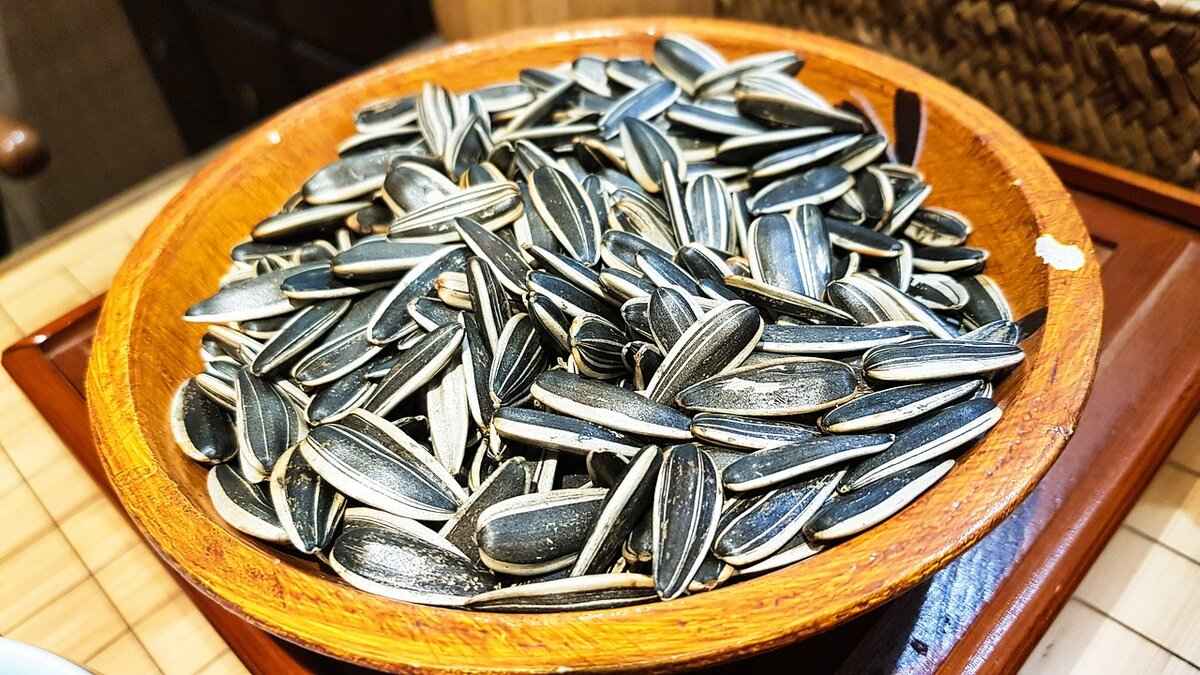
Are There Any Potential Drawbacks to Eating Chia Seeds?
Chia seeds have gained immense popularity as a superfood, known for their numerous health benefits. However, like any food, they come with potential drawbacks that consumers should be aware of. Understanding these drawbacks is crucial for making informed dietary choices.
While chia seeds are generally safe for most people, some potential drawbacks include digestive issues and interactions with certain medications, which should be considered before incorporating them into your diet.
Chia seeds are high in dietary fiber, which can be beneficial for digestion. However, consuming them without adequate hydration may lead to discomfort. When chia seeds absorb liquid, they can expand significantly, potentially causing bloating or gastrointestinal distress if not consumed properly. It is advisable to:
- Soak chia seeds: Always soak chia seeds in water or another liquid before consumption to help them expand and reduce the risk of digestive issues.
- Gradually increase intake: If you are new to chia seeds, start with small amounts and gradually increase your intake to allow your digestive system to adjust.
Chia seeds are rich in omega-3 fatty acids, which can have a blood-thinning effect. This property may pose a risk for individuals taking anticoagulant medications, such as warfarin or aspirin. It’s essential to consult with a healthcare provider if you are on blood-thinning medications to discuss:
- Potential interactions: Understanding how chia seeds may affect your medication regimen.
- Personalized advice: Getting tailored recommendations based on your health status and dietary needs.
Though rare, some individuals may experience an allergic reaction to chia seeds. Symptoms can include:
- Itching or swelling: Particularly around the mouth or throat.
- Gastrointestinal symptoms: Such as nausea or abdominal pain.
If you have a history of allergies to other seeds or nuts, it may be prudent to consult a healthcare professional before trying chia seeds.
While chia seeds are nutrient-dense, they are also calorie-dense. Consuming them in large quantities can lead to an excess caloric intake, which may hinder weight management efforts. To avoid this, consider:
- Portion control: Stick to recommended serving sizes, typically around one to two tablespoons.
- Incorporating variety: Balance your diet with other nutrient-rich foods to avoid over-reliance on any single food source.
Chia seeds can be a valuable addition to a balanced diet, offering numerous health benefits. However, it is crucial to be aware of the potential drawbacks, including digestive issues, medication interactions, and the risk of allergic reactions. By taking precautions and consulting with healthcare professionals when necessary, you can safely enjoy the nutritional advantages that chia seeds have to offer.
Digestive Issues
Chia seeds have gained popularity as a superfood due to their rich nutritional profile and numerous health benefits. However, it is essential to be aware of potential digestive issues that some individuals may encounter when incorporating chia seeds into their diet.
While chia seeds are a fantastic source of fiber, their consumption can lead to bloating or discomfort for certain individuals. This reaction is particularly common if chia seeds are consumed without adequate hydration.
Chia seeds can absorb up to 12 times their weight in water. When they are not properly hydrated before consumption, they can expand in the digestive tract, leading to feelings of fullness or discomfort. It is crucial to ensure that chia seeds are soaked in water or another liquid before consumption to minimize these issues.
- Soaking: Soak chia seeds in water or milk for at least 30 minutes before eating. This allows them to absorb moisture and expand outside of your digestive system.
- Gradual Introduction: If you are new to chia seeds, start with a small amount and gradually increase your intake as your body adjusts.
- Combine with Other Foods: Mix chia seeds into smoothies, yogurt, or oatmeal, which can help with digestion and enhance nutrient absorption.
Some common signs that may indicate digestive issues related to chia seed consumption include:
- Bloating: A feeling of fullness or swelling in the abdomen.
- Gas: Increased flatulence or discomfort in the digestive tract.
- Constipation: Difficulty in passing stools, which can occur if chia seeds are consumed without enough liquid.
Individuals with a history of irritable bowel syndrome (IBS) or other gastrointestinal issues should approach chia seeds with caution. Consulting a healthcare professional before adding chia seeds to your diet is advisable, especially if you have existing digestive concerns.
Despite the potential digestive issues, chia seeds offer numerous health benefits, such as improving heart health and aiding in weight management. The key is to consume them mindfully and ensure proper hydration.
Incorporating chia seeds into your diet can be a nutritious choice, but it is essential to listen to your body. If you experience discomfort, consider adjusting your intake methods, and always prioritize hydration. By doing so, you can enjoy the health benefits of chia seeds while minimizing any negative digestive effects.
Medication Interactions
are a crucial aspect to consider when adding new foods to your diet, especially for individuals taking prescription medications. Among these foods, chia seeds stand out due to their impressive nutritional profile, particularly their high content of omega-3 fatty acids. While these nutrients offer numerous health benefits, they may also pose risks when interacting with certain medications.
Chia seeds, derived from the Salvia hispanica plant, are renowned for their health-promoting properties. However, their rich omega-3 content can potentially interfere with blood-thinning medications. This is primarily because omega-3 fatty acids are known to have a natural blood-thinning effect, which can enhance the effects of anticoagulants and antiplatelet drugs. Therefore, it is essential for individuals on such medications to consult their healthcare provider before incorporating chia seeds into their diet.
For those who are unfamiliar with the implications of omega-3 fatty acids, it is important to understand that these fats play a vital role in numerous bodily functions, including cardiovascular health, brain function, and inflammation reduction. While these benefits are significant, the interaction with blood-thinning medications can lead to increased bleeding risks, especially in individuals who are already predisposed to bleeding disorders or those undergoing surgical procedures.
Some common blood-thinning medications include:
- Warfarin (Coumadin)
- Clopidogrel (Plavix)
- Aspirin
Patients taking these medications should be particularly cautious. It is advisable to maintain open communication with healthcare providers regarding any dietary changes, especially the introduction of chia seeds. Healthcare professionals can provide tailored advice based on individual health conditions and medication regimens.
Moreover, it’s worth noting that while chia seeds are generally safe for most individuals, they can cause digestive discomfort if consumed in excess or without adequate hydration. This is due to their high fiber content, which can lead to bloating or gastrointestinal issues if not properly managed. Therefore, starting with small amounts and gradually increasing intake can be beneficial.
In conclusion, while chia seeds offer numerous health benefits, individuals on blood-thinning medications should approach their consumption with caution. Consulting a healthcare provider is essential to ensure safe and effective dietary choices. The potential for underscores the importance of being informed and proactive about dietary changes, particularly when it comes to superfoods like chia seeds.
Frequently Asked Questions
- What are the health benefits of chia seeds?
Chia seeds are packed with nutrients that can provide numerous health benefits, including improved digestion, enhanced heart health, and support for weight management. Their high fiber content helps with satiety, while omega-3 fatty acids contribute to cardiovascular health.
- How can I incorporate chia seeds into my diet?
You can easily add chia seeds to your meals in various ways! Try making chia seed pudding, adding them to smoothies, or sprinkling them on salads. They’re versatile and can boost the nutritional value of many dishes without altering the flavor.
- Are there any side effects of consuming chia seeds?
While chia seeds are generally safe, some people may experience digestive issues like bloating if they consume them without adequate hydration. Additionally, those on blood-thinning medications should consult a healthcare provider before adding chia seeds to their diet due to their high omega-3 content.
- How much omega-3 is in chia seeds?
A single ounce of chia seeds contains about 5 grams of omega-3 fatty acids, making them an excellent plant-based source of these essential fats, which are important for heart and brain health.


